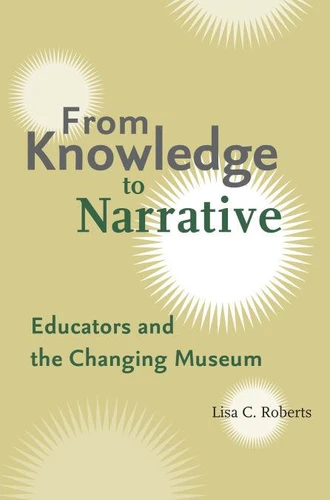From Knowledge to Narrative. Educators and the Changing Museum
Par :Formats :
Disponible dans votre compte client Decitre ou Furet du Nord dès validation de votre commande. Le format ePub protégé est :
- Compatible avec une lecture sur My Vivlio (smartphone, tablette, ordinateur)
- Compatible avec une lecture sur liseuses Vivlio
- Pour les liseuses autres que Vivlio, vous devez utiliser le logiciel Adobe Digital Edition. Non compatible avec la lecture sur les liseuses Kindle, Remarkable et Sony
- Non compatible avec un achat hors France métropolitaine
 , qui est-ce ?
, qui est-ce ?Notre partenaire de plateforme de lecture numérique où vous retrouverez l'ensemble de vos ebooks gratuitement
Pour en savoir plus sur nos ebooks, consultez notre aide en ligne ici
- Nombre de pages216
- FormatePub
- ISBN978-1-58834-448-9
- EAN9781588344489
- Date de parution15/07/2014
- Protection num.Adobe DRM
- Taille2 Mo
- Infos supplémentairesepub
- ÉditeurSmithsonian Books
Résumé
From Knowledge to Narrative shows that museum educators-professionals responsible for making collections intelligble to viewers-have become central figures in shaping exhibits. Challenging the traditional, scholarly presentation of objects, educators argue that, rather than transmitting knowledge, museums' displays should construct narratives that are determined as much by what is meaningful to visitors as by what curators intend.
Lisa C. Roberts discusses museum education in relation to entertainment, as a tool of empowerment, as a shaper of experience, and as an ethical responsibility. The book argues for an expanded role for museum education based less on explaining objects than on interpreting narratives.
Lisa C. Roberts discusses museum education in relation to entertainment, as a tool of empowerment, as a shaper of experience, and as an ethical responsibility. The book argues for an expanded role for museum education based less on explaining objects than on interpreting narratives.
From Knowledge to Narrative shows that museum educators-professionals responsible for making collections intelligble to viewers-have become central figures in shaping exhibits. Challenging the traditional, scholarly presentation of objects, educators argue that, rather than transmitting knowledge, museums' displays should construct narratives that are determined as much by what is meaningful to visitors as by what curators intend.
Lisa C. Roberts discusses museum education in relation to entertainment, as a tool of empowerment, as a shaper of experience, and as an ethical responsibility. The book argues for an expanded role for museum education based less on explaining objects than on interpreting narratives.
Lisa C. Roberts discusses museum education in relation to entertainment, as a tool of empowerment, as a shaper of experience, and as an ethical responsibility. The book argues for an expanded role for museum education based less on explaining objects than on interpreting narratives.



